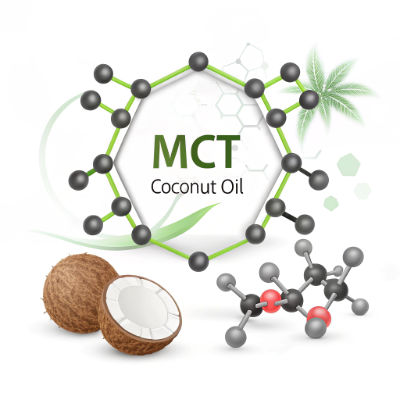
Proteins
Description: Proteins, composed of amino acids with a general formula CₓHₓNₓOₓ, are essential macromolecules vital for muscle repair, immune function, and hormone production.
Prevalence: ~7.7% of adults over 70 fall below the EAR (0.66 g/kg/day); higher in food-insecure populations (~10.5% of households).
At-Risk Groups: Elderly, vegans with poor diet planning, low-income individuals.
Health Impacts: Muscle loss (sarcopenia), weakened immunity, delayed wound healing.
Cause: Low intake of quality protein sources (e.g., meat, eggs, legumes), especially in plant-based diets without variety.

Carbohydrates (Complex/Fiber)
Description: Carbohydrates, with a general formula C₆H₁₂O₆ for simple sugars like glucose, are essential macronutrients providing energy and supporting digestive health through fiber.
Prevalence: ~90% of adults don’t meet the 25-38 g/day fiber recommendation.
At-Risk Groups: General population, especially those relying on processed foods.
Health Impacts: Digestive issues (constipation), increased risk of heart disease, type 2 diabetes, and colon cancer.
Cause: Diets low in whole grains, fruits, vegetables, and legumes; high in refined carbs.

Fats (Omega-3 Fatty Acids)
Description: Omega-3 fatty acids, such as DHA with the chemical formula C₂₂H₃₂O₂, are essential polyunsaturated fats known for their anti-inflammatory properties and heart health benefits.
Prevalence: >90% consume below the 250-500 mg/day EPA/DHA recommendation.
At-Risk Groups: General population, especially those not eating fatty fish.
Health Impacts: Inflammation, higher cardiovascular risk, cognitive decline, poor fetal brain development.
Cause: Low intake of fatty fish (e.g., salmon, mackerel), high omega-6/omega-3 ratio from processed oils.

Fats (Omega-6 Fatty Acids)
Description: Omega-6 fatty acids, such as linoleic acid with the chemical formula C₁₈H₃₂O₂, are essential polyunsaturated fats critical for energy production and metabolic processes.
Prevalence: >90% consume below the 250-500 mg/day EPA/DHA recommendation, with imbalanced omega-6/omega-3 ratios.
At-Risk Groups: General population, especially those with high processed food intake.
Health Impacts: Increased inflammation, higher risk of heart disease, autoimmune diseases when imbalanced.
Cause: High intake of omega-6-rich oils (e.g., corn, soybean), low omega-3 consumption.

Fats (Medium-Chain Triglycerides)
Description: Medium-Chain Triglycerides (MCTs), such as caprylic acid with the chemical formula C₈H₁₆O₂, are saturated fats rapidly absorbed for energy, supporting weight management and cognitive function.
Prevalence: Data limited; not typically deficient as non-essential, but low in diets lacking coconut or palm kernel oil.
At-Risk Groups: Those on low-fat or non-ketogenic diets.
Health Impacts: Reduced energy, limited cognitive and gut health benefits in low-MCT diets.
Cause: Low intake of coconut oil, palm kernel oil, or MCT supplements.

Fats (Olive Oil)
Description: Olive oil, primarily composed of triolein with the chemical formula C₅₇H₁₀₄O₆, is a monounsaturated fat rich in antioxidants, promoting heart and gut health.
Prevalence: Data limited; not typically deficient as non-essential, but low in diets lacking Mediterranean foods.
At-Risk Groups: Those with low intake of olive oil or Mediterranean diet components.
Health Impacts: Reduced heart health benefits, higher inflammation without antioxidant-rich fats.
Cause: Low intake of olive oil, reliance on processed oils.
AdSense Ad Placeholder (Responsive Ad Unit)
Your Guide to Macronutrients
Macronutrients—carbohydrates, proteins, and fats—are the foundation of a healthy diet, fueling your body for energy, growth, and vitality. At NutrientShield, we’re here to help you understand these essential nutrients, optimize your intake, and make informed choices for lasting wellness.1 Whether you’re an athlete, a busy professional, or simply aiming to feel your best, balancing macronutrients is key to achieving your health goals.
What Are Macronutrients?
Macronutrients are nutrients your body needs in large amounts to function properly. Each provides energy (measured in calories) and serves unique roles:2
- Carbohydrates: Primary energy source (4 kcal/g), fueling your brain, muscles, and daily activities.
- Proteins: Building blocks (4 kcal/g) for muscles, enzymes, and immune function.
- Fats: Concentrated energy source (9 kcal/g), supporting cell function and nutrient absorption.
The USDA recommends 45–65% of daily calories from carbs, 10–35% from protein, and 20–35% from fat, tailored to your age, activity, and goals.3
Carbohydrates: Your Energy Source
Carbohydrates are broken down into glucose, powering everything from your morning jog to mental focus. They come in two forms:4
- Simple Carbs: Found in fruits and sugars, provide quick energy but may spike blood sugar.
- Complex Carbs: Found in whole grains, legumes, and vegetables, offer sustained energy and fiber for digestion.
Adults need at least 130 g/day of carbs, with athletes requiring 6–10 g/kg body weight.5 Choose complex carbs like quinoa or oats to stabilize blood sugar and reduce chronic disease risk.6 For a clean carb boost, try Naked Nutrition's Dextrin (ideal for post-workout recovery).Affiliate Disclosure: We may earn a commission on qualifying purchases at no extra cost to you.
Proteins: Building and Repairing
Proteins are made of amino acids, essential for muscle repair, immune health, and hormone production. Complete proteins (e.g., eggs, fish) provide all nine essential amino acids, while plant-based sources (e.g., beans, tofu) can be combined for balance.7
Adults need 0.8 g/kg body weight daily, with active individuals requiring 1.2–2.0 g/kg.8 A high-protein diet enhances satiety, aiding weight management.9 Boost your intake with Optimum Nutrition’s Gold Standard Whey, trusted by athletes for muscle recovery.Affiliate Disclosure: We may earn a commission on qualifying purchases at no extra cost to you.
Fats: Essential for Health
Fats support cell membranes, hormone synthesis, and absorption of vitamins A, D, E, and K. Types include:10
- Unsaturated Fats: Found in olive oil, avocados, and salmon, promote heart health.
- Saturated Fats: Found in butter and red meat, should be limited to <10% of calories.
- Trans Fats: Found in processed foods, should be avoided.
Fats should comprise 20–35% of calories, with unsaturated fats prioritized.3 Add healthy fats to your diet with PiqueLife’s MCT-based Beauty Electrolytes for energy and skin health.Affiliate Disclosure: We may earn a commission on qualifying purchases at no extra cost to you.
Balancing Your Macros
A balanced macronutrient intake supports energy, weight management, and disease prevention. A 2020 study found diets with 50–55% carbs linked to lower mortality.11 Use this table to guide your daily intake:
| Macronutrient | Recommended % of Calories | Grams per Day (2000 kcal diet) |
|---|---|---|
| Carbohydrates | 45–65% | 225–325 g |
| Proteins | 10–35% | 50–175 g |
| Fats | 20–35% | 44–78 g |
Track macros using apps like MyFitnessPal or consult a dietitian for personalized ratios. For active lifestyles, try Macros Protein Bar Bundle for balanced nutrition on the go.Affiliate Disclosure: We may earn a commission on qualifying purchases at no extra cost to you.
Practical Tips for Macronutrient Success
- Prioritize Whole Foods: Choose oats, chicken, and avocados over processed options.
- Plan Meals: Prep balanced meals with 1/3 carbs, 1/3 protein, and 1/3 fats.
- Adjust for Goals: Increase protein for muscle gain or carbs for endurance.
- Stay Hydrated: Water supports nutrient metabolism.
Explore our Nutrients Guide or Mitochondrial Health Guide for more tips on optimizing your diet.
Disclaimer: This information is for educational purposes only and not a substitute for medical advice. Consult a healthcare professional before starting supplements.